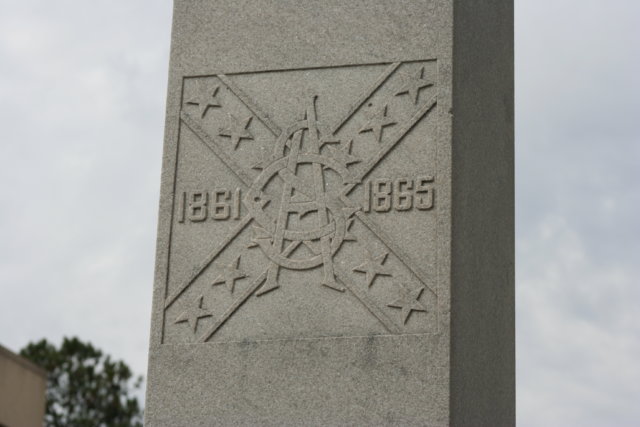The horrific events that occurred Aug. 12 in Charlottesville, Virginia, have spurred interest in the issue of Confederate statues, monuments and building names that honor either military or political figures of the Confederacy. While this is certainly not the most pressing aspect of racial issues in our country, it does deserve a conversation. When public funds and public property are used to honor specific individuals, it is worth asking about the merits those individuals have demonstrated.
Those opposed to changing the names of buildings or removing statues and monuments that honor confederate leaders most frequently argue that doing so would eliminate our history. Monuments and statues, however, are not history. They are representations of history, and we build them to honor specific people for specific acts that we believe are worthy of remembrance. The question should be asked: Exactly what are we honoring with statues and monuments of confederate leaders?
Slavery central to Confederacy’s cause
The political leaders of the Confederacy were individuals committed to maintaining a nation built upon slavery. They were individuals, such as Alexander Stephens, vice-president of the Confederacy, who rejected the assertion of the Declaration of Independence that “all men are created equal.” In what has become known as the Cornerstone Speech, Stephens declared that the Confederacy rejected Thomas Jefferson’s (and the rest of the founders’) notions of equality. To Stephens, the cornerstone of the Confederacy rested “… upon the great truth that the Negro is not equal to the white man; that slavery subordination to the superior race is his natural and normal condition.”
Stephens wasn’t an outlier in emphasizing the centrality of slavery to the confederate cause. In fact, he was representative of the dominant feeling of the political leadership of the South. John Baldwin, a delegate to the Virginia Secession convention, stated, “… there is but one single subject of complaint which Virginia has to make against the government under which we live; a complaint made by the whole South, and that is on the subject of African Slavery …” Many other confederate political leaders made similar public statements. In the present day, Ta-Nehisi Coates of The Atlantic has put together a lengthy list of such statements by these leaders.
Secession documents of many of the Confederate states also made this clear. Georgia, Texas, Mississippi, South Carolina, and Virginia all made definitive statements regarding the centrality of slavery to their decision to leave the union.
These political leaders led an armed rebellion against the United States of America, rejecting the fundamental principle of the Declaration of Independence, for the sole purpose of protecting and promoting the institution of slavery. What about this is worthy of memorializing? What is worthy honoring?
Military leaders fought for slavery
Honoring the military leaders of the South does little better. Yes, many of them had personal characters that were quite honorable. It is also clear that many were very gifted military strategists and tacticians. But they chose, during the most important crisis in the nation’s history, to fight to keep others in slavery. In fact, if they hadn’t fought for the cause of slavery, history may never had remembered their names. Their claim to historical significance was that they fought for the Confederacy. They fought to reject the equality of their fellow human beings. Again, what about this choice deserves honor?
‘Don’t be so sensitive’
Finally, many have attempted to reduce this issue to nothing more than some people being unduly “offended” by these statues. This is an attempt to constrain public reaction by saying, “Don’t be so sensitive.”
If tempted by this line of reasoning, imagine yourself to be a descendant of a German Jew sent to Auschwitz. Now imagine yourself, as such a person walking into a public building or public park and being greeted by a statue of Heinrich Himmler or General Erwin Rommel or even Adolph Hitler. Honoring these individuals in such a manner would tell Jews everywhere that that community or state valued the ideas and principles of those individuals. By contrast, it would tell modern-day Jews that their lives were not valued by those in power. The revulsion and disgust you feel at the thought of such monuments is what many African-Americans have experienced daily in the U.S. The feeling certainly represents something more than mere offense.
A heritage and history unworthy of honor
The fact is, many (if not most) of the Civil War monuments in question were erected for just that purpose — to glorify the southern cause. They were meant to tell African-Americans that they still did not belong.
This is the legacy and heritage of the Confederacy. It is its only heritage. It’s a heritage unworthy of honoring by a people who truly believe in the Declaration of Independence and the protection of individual liberty. Taking these Confederate memorials down is not “whitewashing history.” It is reaffirming our commitment that “all men are created equal; that they are endowed by their Creator with certain unalienable rights; that among these are life, liberty, and the pursuit of happiness.”
Take them all down.






















